Calendar of events, awards and opportunities
Every week, we update this list with new meetings, awards, scholarships and events to help you get your ducks in a row. If you’d like us to feature something that you’re offering to the bioscience community, email us with the subject line “For calendar.” ASBMB members’ offerings take priority, and we do not promote products/services. Learn how to advertise in ASBMB Today.
Jan. 21: Webinar on mentoring URM trainees in STEM
January is Mentoring Month, and the the National Research Mentoring Network webinar series continues on Jan. 21 with "How to be an effective mentor for underrepresented STEM trainees." Register here.
Jan. 21: Webinar on COVID-19 drugs and vaccines
DDN is offering a free webinar series titled "Racing Against COVID-19: Drug and Vaccine Development." Tune in at 2:30 p.m. Jan. 21 to hear from Matthew Disney of Scripps Research Institute in Florida and Stephan Thomas at the Institute for Global Health & Translational Science of SUNY Upstate Medical University. Learn more and register.
Jan. 29: L'Oréal USA For Women in Science Fellowship application deadline
The L’Oréal USA For Women in Science fellowship program awards grants of $60,000 to five women postdoctoral scientists annually. Candidates must be U.S. citizens or permanent residents and must have completed their Ph.D. and have started in their postdoctoral research position by the application deadline, Jan. 29. See past winners and more information.
Jan. 30: Deadline to apply for PALM fellowship
The Promoting Active Learning and Mentoring (PALM) Network is accepting applications through Jan. 30 from postdocs and faculty members who wish to learn about and get better at implementing evidence-based active learning. This program is supported by the National Science Foundation. During the COVID-19 pandemic, fellows and mentors will participate virtually. Learn more.
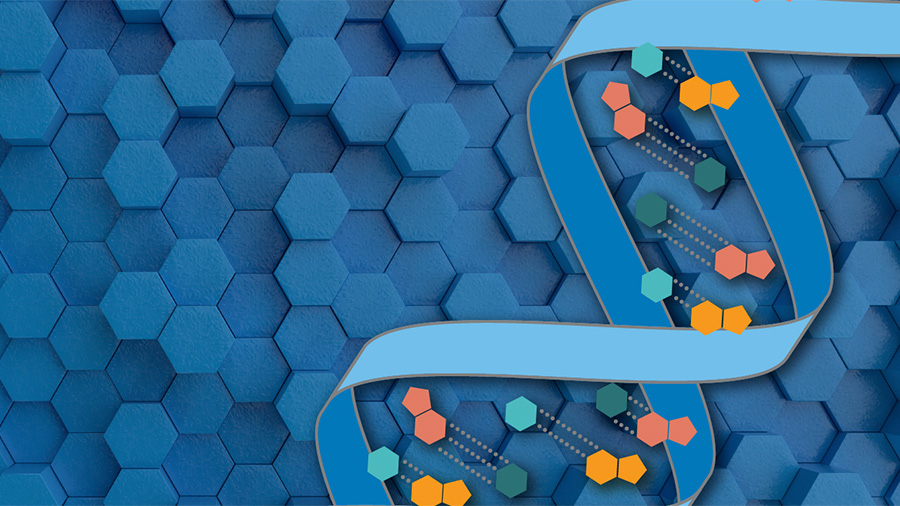
Feb. 2: Constructing narratives for teaching science
ASBMB Catalyst Conversations are pedagogical sandboxes where instructors can showcase developing teaching practices in an informal setting. Topics are meant to stimulate discussion and new ideas among participants. For this Catalyst Conversation, we are particularly interested in how your response to the pandemic will inform your teaching moving forward. What worked? What didn’t work? How will these practices change your teaching when instructors are back in the classroom face-to-face? Projects do not have to be fully fleshed out to the level of an abstract submitted to a conference. Learn more and register.
Feb. 18: Up to $35K for outreach from ASCB
The American Society for Cell Biology is offering its members up to $35,000 to "engage local communities with the process of science and increase public scientific literacy." The next deadline for grant applications is March 31, but, before that, applicants should attend the Feb. 18 webinar to get tips on writing a successful application. Learn more.
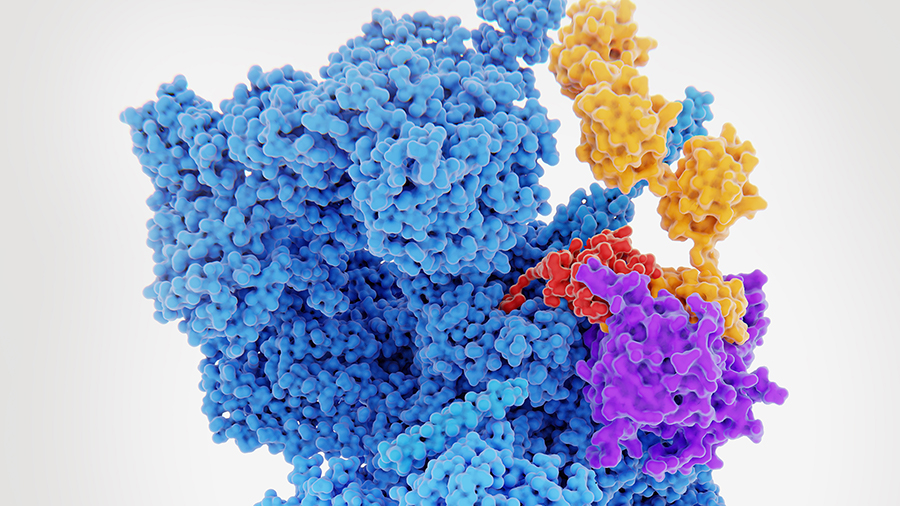
Feb. 24–26: Proteinases and their inhibitors
Founded by Hans Fritz and Vito Turk, the meeting has been providing a scientifically stimulating and outstanding open atmosphere to researchers on proteolytic enzymes for almost four decades. The meeting covers diverse and vibrant fields of protease research, such as mechanistic studies on proteases in their molecular, cellular and organismic context. Sessions include proteolysis in cancer; proteolysis in neuro-signaling and neurodegeneration; proteolysis in blood coagulation; discovery of protease substrates; mechanisms and engineering of proteases, ligases, their substrates and inhibitors. This will be a forum primarily for young scientists (pre- or postdoctoral) to present their exciting and/or intriguing results for discussion with leading experts. Learn more.
March 8–10: NASEM workshop
National Academies of Sciences, Engineering, and Medicine will host a workshop titled “Quantum Science Concepts in Enhancing Sensing and Imaging Technologies: Applications for Biology” virtually on March 8–10. The announcement we received said the event will cover "research and development needs to advance biological applications of quantum-enabled sensing and imaging technologies." Learn more about the project. Register for the event here.

May 4–5: A special symposium celebrating the 50th anniversary of the Protein Data Bank
This celebration of the 50th anniversary of the founding of the Protein Data Bank as the first open-access digital data resource in biology will include presentations from speakers from around the world who have made tremendous advances in structural biology and bioinformatics. Students and postdoctoral fellows are especially encouraged to attend and will be eligible for poster awards. Learn more.
May 31: Application deadline for IUBMB editorship
The International Union of Biochemistry and Molecular Biology is seeking a new editor for its journal Biotechnology and Applied Biochemistry. The editor has a three-year term. Applications are due May 31. See the job description and application instructions.
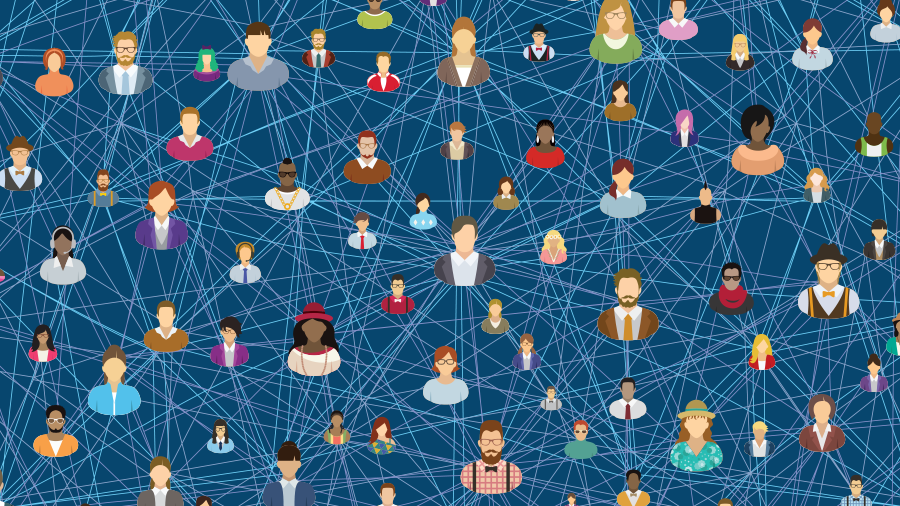
Call for virtual scientific event proposals
The ASBMB provides members with a virtual platform to share scientific research and accomplishments and to discuss emerging topics and technologies with the BMB community.
The ASBMB will manage the technical aspects, market the event to tens of thousands of contacts and present the digital event live to a remote audience. Additional tools such as polling, Q&A, breakout rooms and post event Twitter chats may be used to facilitate maximum engagement.
Seminars are typically one to two hours long. A workshop or conference might be longer and even span several days.
Prospective organizers may submit proposals at any time. Decisions are usually made within four to six weeks.
Enjoy reading ASBMB Today?
Become a member to receive the print edition four times a year and the digital edition monthly.
Learn moreFeatured jobs
from the ASBMB career center
Get the latest from ASBMB Today
Enter your email address, and we’ll send you a weekly email with recent articles, interviews and more.
Latest in Careers
Careers highlights or most popular articles

From humble beginnings to unlocking lysosomal secrets
Monther Abu–Remaileh will receive the ASBMB’s 2026 Walter A. Shaw Young Investigator Award in Lipid Research at the ASBMB Annual Meeting, March 7-10 in Washington, D.C.

Chemistry meets biology to thwart parasites
Margaret Phillips will receive the Alice and C. C. Wang Award in Molecular Parasitology at the ASBMB Annual Meeting, March 7-10 in Washington, D.C.

Decoding how bacteria flip host’s molecular switches
Kim Orth will receive the Earl and Thressa Stadtman Distinguished Scientists Award at the ASBMB Annual Meeting, March 7–10, just outside of Washington, D.C.
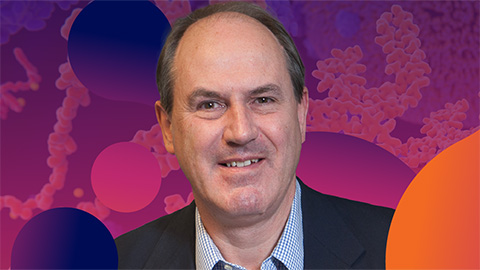
Defining JNKs: Targets for drug discovery
Roger Davis will receive the Bert and Natalie Vallee Award in Biomedical Science at the ASBMB Annual Meeting, March 7–10, just outside of Washington, D.C.
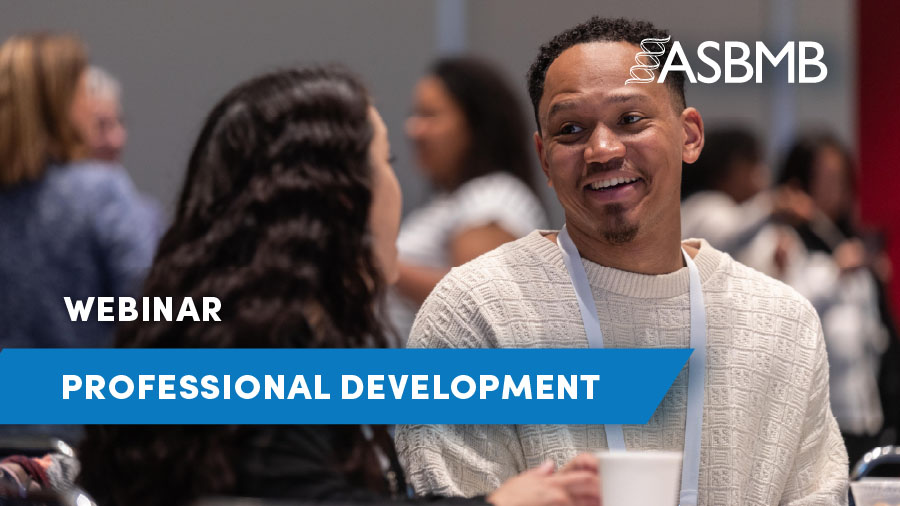
Upcoming opportunities
No matter where you are in your career and what future path you aspire to, everyone needs leadership skills. Join ASBMB for practical strategies for building and practicing leadership skills.

Close out ASBMB 2026 with a bang
The closing reception of the 2026 ASBMB Annual Meeting will be held at the Torpedo Factory Art Center in Alexandra, Virginia.
